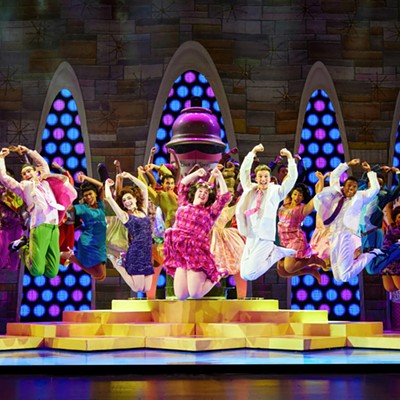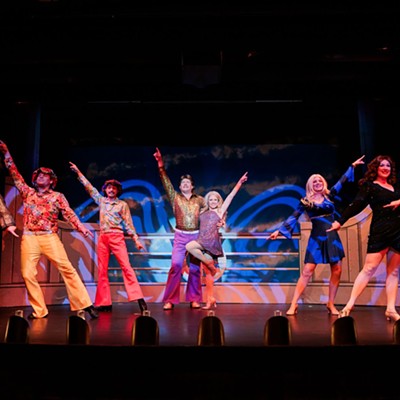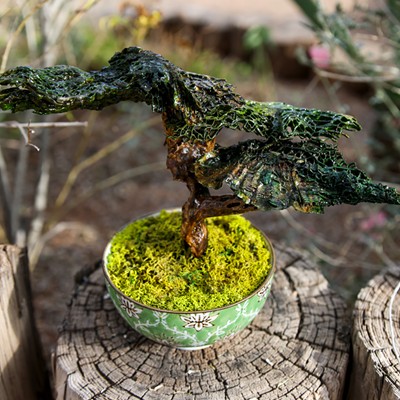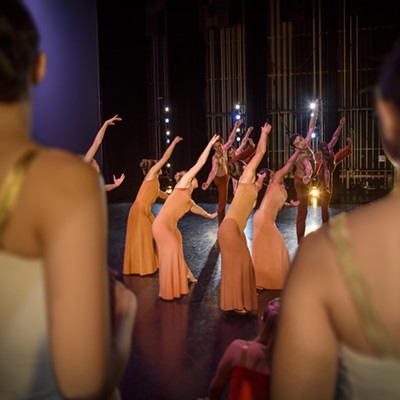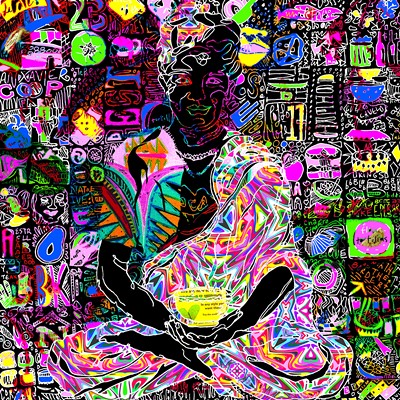If you go—and you really should go—you might want to fortify yourself with a neat shot of vodka.
You'll be both more and less comfortable in the presence of the sometimes ridiculous, sometimes maddening, sometimes just really, really sad, gaggle of folks featured in the Rogue Theatre's fine production of Anton Chekhov's Uncle Vanya.
They do seem to know the value of vodka, although perhaps not realizing that although it sometimes seems to help them negotiate a dull edge, it's just as likely to muddle their vision, their ambition and their will to act. Today we might say that they suffer existential ennui, but to these folks it just feels like purposelessness, powerlessness and stagnation. What results is an unholy embrace of their own lives, and of each other. This embrace is even at times violent, but largely in the most subtle of ways.
Chekhov holds a place of great esteem in the development of modern drama, although he was originally a writer of short pieces, jokey sorts of things, for various publications to keep his poor family somewhat solvent. He then began to produce short stories quite prolifically, and, as a writer, was known most for his skill in fiction. But he was also a physician, and moved back and forth between those seemingly widely diverse worlds with ease. In fact, having now been treated to physicians-cum-writers such as Oliver Sachs and Richard Seltzer, we might venture a theory that Chekhov's own writing was informed by the unique perspective of a practicing physician, even a 19th century one.
Chekhov's place as a serious dramatist was cemented by his association with the Moscow Art Theatre and the influence of Constantin Stanislavski, one of the theater's directors and that famous proponent of an acting style that still informs how actors approach building a character and performing today.
Uncle Vanya was presented by the Moscow Art Theatre in 1899, just a few years before the 44-year-old doctor's death from tuberculosis. Chekhov had almost turned his back on writing plays after critics and audiences received some of his work poorly, but in the hands of a director who was able to understand and appreciate Chekhov's style of characters involved in sparse action, but demonstrating rich internal life, he continued his work, leaving the theater world an inestimable legacy.
The story told in Uncle Vanya can be stated fairly simply—if you can keep the characters straight. (Rogue has thoughtfully included in the playbill a chart of the characters and their relation to each other.) Vanya (Ryan Parker Knox) and his niece Sonya (Holly Griffith) live in and work the estate of Vanya's deceased father. Sonya's mother, Vanya's sister, married a professor, Alexander (David Weynand), who, when Vanya's sister died, married Yelena, (Grace Kirkpatrick) a beautiful woman much younger than he. Alexander and Yelena are city dwellers, relying on the profits of the estate to underwrite their life, but have moved to the estate for lack of anything they can do to keep up their life in the city. The presence and personalities of these two upset the routines of the estate, which although mundane, does keep an equilibrium that helps bury the troubled feelings seemingly harbored by its residents and frequent visitor Doctor Astrov (Matt Bowdren). (Nothing like long-term company to shake things up to the point of ruination.) When the professor announces that he feels the best thing to do is to sell the estate for his advantage, Vanya is outraged. Where will he live? What is to become of the effort he put into running the estate, the effort that now seems to be the sum of his meaningless life?
Chekhov unfolds this story as carefully as one would unfold a handkerchief holding something of value. He allows his characters time to notice their lack of ambition, their boredom, the problems they have with each other. This sort of storytelling for the stage could be deadly if a director didn't understand Chekhov's intentions, and even more deadly if the actors were unwilling to allow themselves the space to simply unwind within their routines and that which disrupts them, revealing both the simplicity and the complexity of their lives. Fortunately Rogue's team gets it.
Knox's Vanya is both likeable and wearing, very much as we might describe ourselves if pressed. He complains about his life, but doesn't seem willing to take action to change it. He is loveless, and drunkenly approaches Yelena, who, of course, represents something he can't have. Chekhov named the play for this character, although this is not purely his story; we learn much about the uninterest and emptiness and boredom of other characters, who certainly are major players. Perhaps it's because Vanya does reach a breaking point, and he does take action, although it's absurd and it fails, leaving him feeling even more powerless than he felt himself to be initially. Knox is both pitiful and tragic.
The others in the ensemble ably bump into each other like lead pinballs. Bowdren's Astov gives the inhabitants of the estate a glimpse of what lies beyond, which aids the dramatic energy, but he too complains of a meaningless life and a world of crackpots. Cynthia Meier's Mrs. Voynitsky, Vanya's mother, is a looming presence, but that's all. Molly McKasson is Marina, Sonya's rather ancient nanny whose current usefulness seems to be supplying tea and vodka. All of the actors here create richly textured characters, and even though many complain they are bored, we never are.
One of the saddest exchanges in all of theater's literature is delivered in the final moments of this play, as Sonya and Vanya try to re-establish some sense of order after Vanya's useless outrage. It leaves us stunned by its youthful fairytale nature as it sinks into a miserable Vanya.
"What can we do? We must live our lives. Yes, we shall live, Uncle Vanya. We shall live through the long procession of days before us, and through the long evenings; we shall patiently bear the trials that fate imposes on us; we shall work for others without rest, both now and when we are old; and when our last hour comes we shall meet it humbly, and there, beyond the grave, we shall say that we have suffered and wept, that our life was bitter, and God will have pity on us. Ah, then dear, dear Uncle, we shall see that bright and beautiful life; we shall rejoice and look back upon our sorrow here; a tender smile—and—we shall rest. I have faith, Uncle, fervent, passionate faith."
Save some of that vodka for a shot after this maddening and moving theatrical exercise that the Rogue delivers so well.

